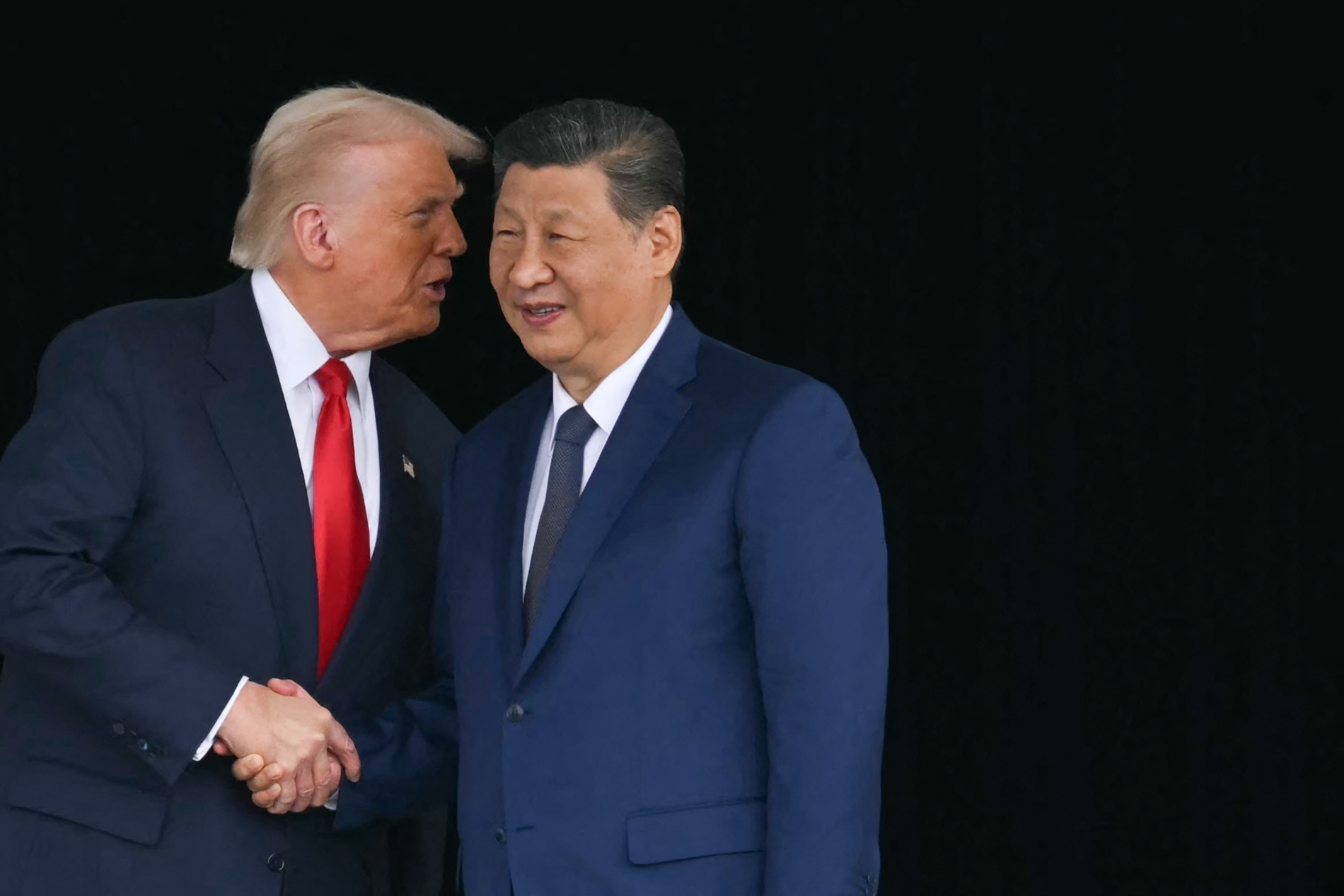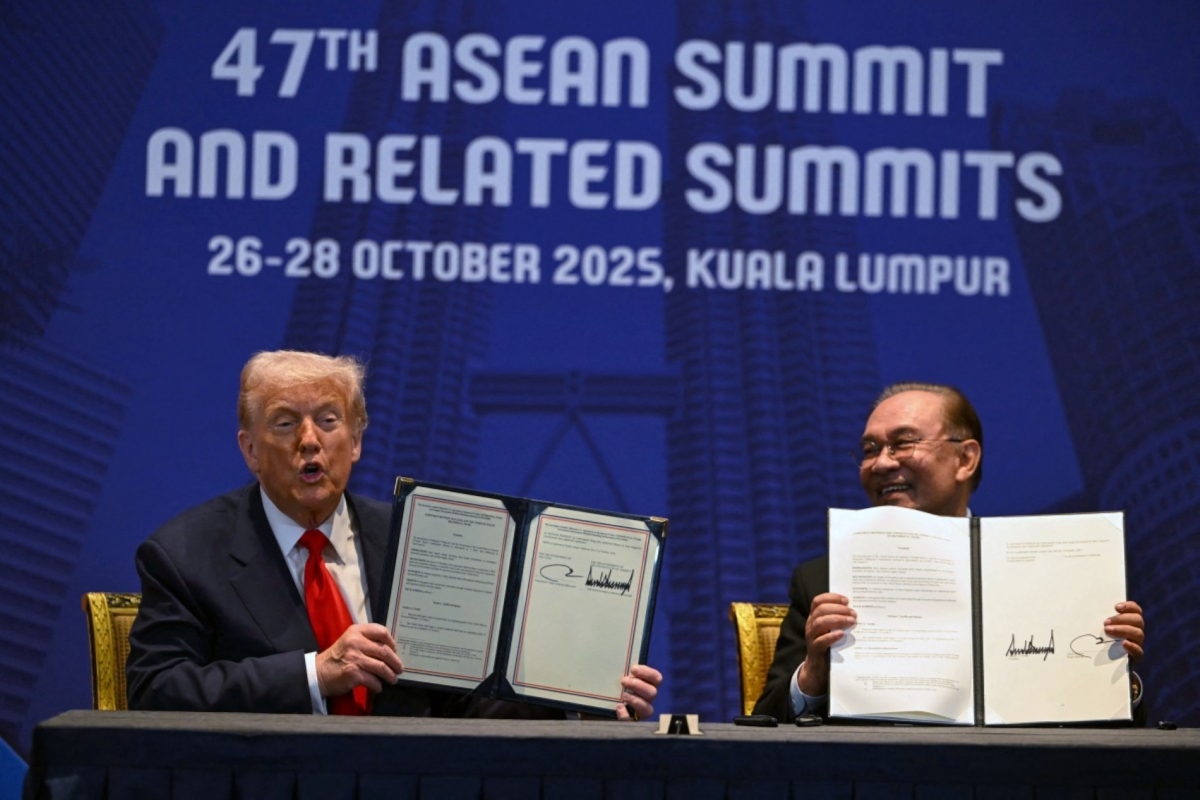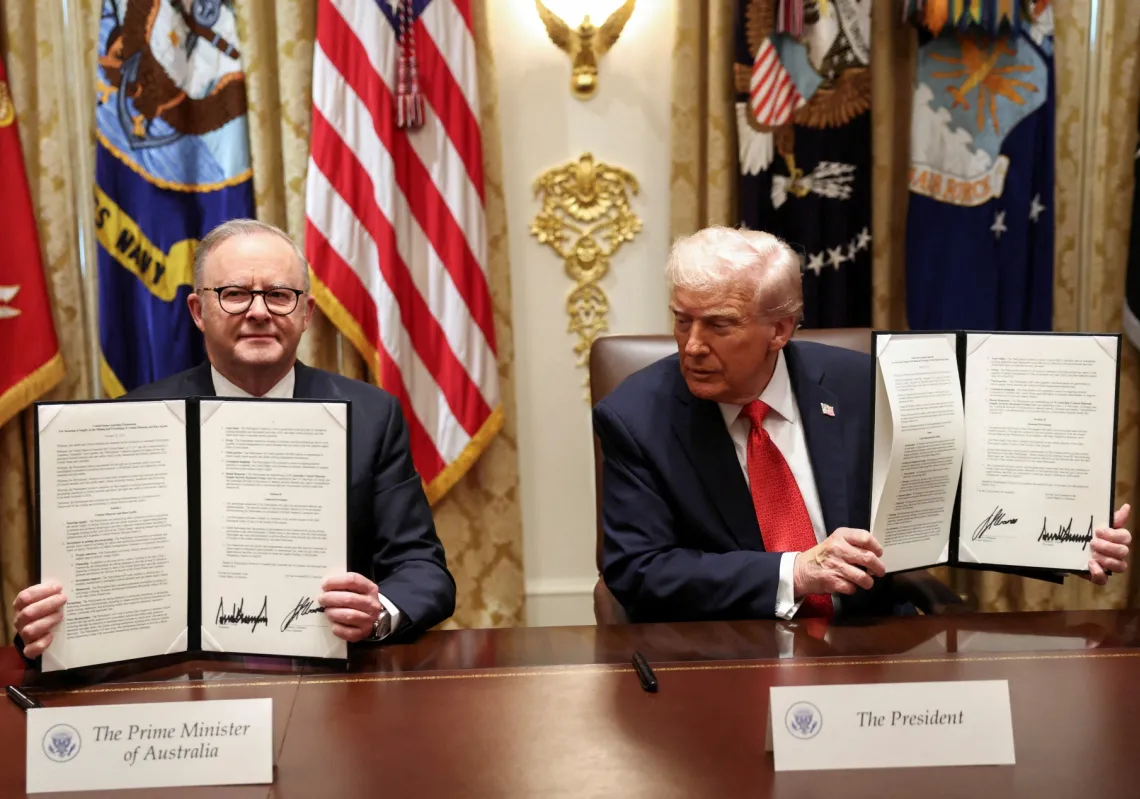As China flexes its rare-earth muscle in trade talks, US President Donald Trump has been waging an all-out effort to ramp up domestic critical mineral production and secure new partnerships abroad.
That campaign has kicked into high gear in recent weeks as the Trump administration has chased minerals in its diplomacy in the Asia-Pacific, striking a raft of deals in just this past month with Australia, Malaysia, Thailand, and Japan. At home, the US leader has also embraced a more unorthodox—and hands-on—approach to resuscitating a domestic mining industry as his administration increasingly takes equity stakes in private companies.
“The acceleration of efforts to counter China has been at breakneck speed,” said Gracelin Baskaran, director of the Critical Minerals Security Programme at the Centre for Strategic and International Studies, a Washington, DC-based think tank.
Few issues have imbued the second Trump administration’s agenda quite like critical minerals—a group of around 50 mineral commodities that the US Geological Survey has deemed critical to US national and economic security. Among those commodities are the not-so-rare rare earths, which are 17 metallic elements that underpin everything from F-35 fighter jets to wind turbines.
China maintains a powerful grip on global supply chains for rare earths, commanding around 85% of rare-earth processing and 92% of magnet production—giving it key leverage in negotiations with Washington.
Those tensions came to a head last month when Trump and Chinese leader Xi Jinping met for rare talks in Busan, South Korea, resulting in a temporary truce that will see both countries dial back some of their harshest measures in the immediate future.

China agreed to walk back some of its most expansive rare-earth export controls, which were issued three weeks ago but had yet to take effect. But Beijing’s earlier export controls—including restrictions targeting gallium and germanium, two crucial semiconductor inputs, as well as a sweeping licensing system—appear to remain in place, ensuring that the country still has a powerful card to play in future trade talks.
“The Chinese have an enormous amount of leverage over the United States, certainly with the magnets,” said Chris Berry, the president of House Mountain Partners, an independent metals analysis consultancy.
It will likely take at least “five to seven years, under the best of circumstances, to have some sort of a rare-earth magnet supply chain that does not touch China,” he added.
Desperate to slash US dependence on Beijing, the Trump administration has eagerly sought out new mineral deals abroad. From Ukraine to Pakistan, Trump has struck agreements or secured commitments over critical minerals with at least eight countries, many of which have used the deals to curry favour with the US leader.













